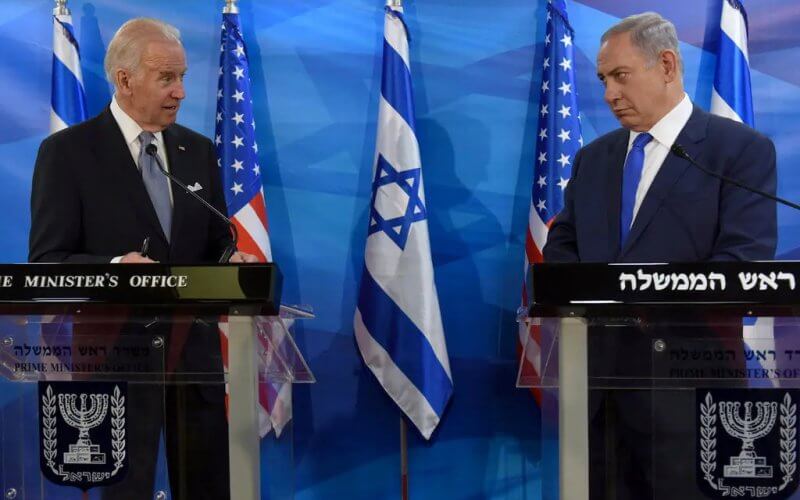The Biden administration is becoming increasingly frustrated with the way Israeli Prime Minister Benjamin Netanyahu is managing the ongoing conflict in Gaza, prompting officials to consider methods aimed at collapsing his government, according to reports.
A specialist from Israel who often advises American officials was quoted in New York Magazine as stating that a prominent figure in the administration had sought guidance on best methods to destabilize Netanyahu’s coalition. The officials were particularly interested in understanding the mechanics and exploring what demands could weaken him and his government, according to the report.
"The United States and Israel are clearly diverging on attitudes toward the war, for various reasons," said Ilan Berman, vice president of the American Foreign Policy Council (AFPC)."
“First and foremost, the old saying that 'all politics are local' applies here. President Biden is heading into a tough reelection, and his growing pressure on Israel is at least in part an attempt to mollify domestic constituents clamoring for the White House to do more to retrain Israel and ameliorate humanitarian suffering in Gaza," he explained to The Foreign Desk.
The American expert mentioned in the reports remarked that the White House acknowledges Prime Minister Netanyahu's challenge, which, according to officials, is his own creation. The expert expressed that Netanyahu has little flexibility and has generated problems for the U.S. They emphasized the need for a significant shift in the political dynamics, warning that time is short.
The report was published shortly after a MSNBC interview featuring U.S. President Joe Biden, during which he expressed significant worries in Washington regarding civilian casualties in Gaza. He emphasized his belief that Netanyahu's actions were detrimental to both Israel and its interests.
Biden also labeled the proposed Israeli Defense Force (IDF) operation in southern Gaza's Rafah as crossing a "red line."
In reaction to Biden's remarks on MSNBC suggesting that his policies in Gaza are detrimental to Israel, Netanyahu stated to Politico that he is unsure of the meaning behind the president's words. "I don't know exactly what the president meant, but if he meant by that that I'm pursuing private policies against the wish of the majority of Israelis and that this is hurting the interests of Israel, then he's wrong on both counts," Netanyahu told Politico.
"These are not my private policies only. They are policies supported by the overwhelming majority of Israelis," Netanyahu added.
Netanyahu also expressed the sentiment that Israelis firmly oppose the idea of reinstating the Palestinian Authority (PA) in Gaza. He emphasized that they stand by his stance, stating that endorsing a Palestinian state should be unequivocally refused rather than imposed upon them. "The majority of Israelis understand that if we don't do this, what we will have is a repetition of the October 7 massacre, which is bad for Israel, bad for the Palestinians, and bad for the future of peace in the Middle East," Netanyahu told Politico.
When questioned on Sunday about the possibility of Israeli forces entering Rafah, Netanyahu affirmed that they would indeed go there and emphasized their commitment to remain. He stressed the importance of maintaining a red line, referring to the prevention of a recurrence of events like those of October 7.
"It is true as well that the Israeli government has not done much proper planning for a 'day after' in Gaza and hasn't yet communicated a clear humanitarian strategy. The major question is whether the U.S. will become a real impediment to Israel's objective of eliminating Hamas. If that happens, the U.S.-Israeli 'special relationship' could really suffer," Berman told The Foreign Desk.
Related Story: Lisa on Newsmax: Biden and His Pressure on Netanyahu









